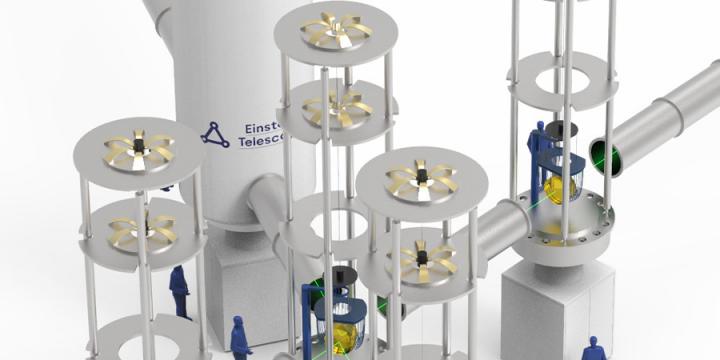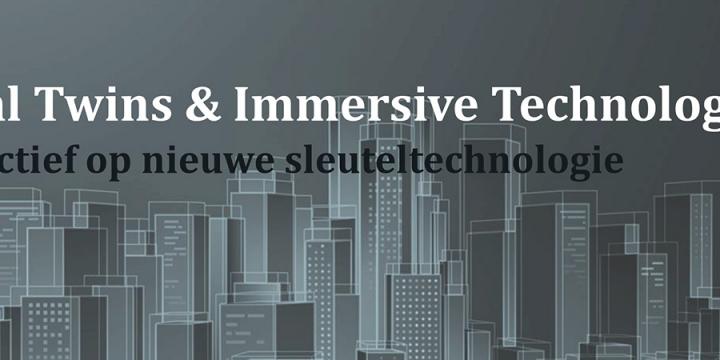During the second round of the National Growth Fund, a total of €5 billion, as well as a reserve of €1.3 billion, will be made available by the government for programs that contribute to innovation and the growth capacity of the Netherlands. The proposals NXTGEN HIGHTECH, PhotonDelta, GroenkrachtNL, Sustainable Materials NL, Aviation in Transition and EinsteinTelescope in the field of key technologies and materials will receive a total of 2.9 billion euros. Holland High Tech, the High Tech Systems and Materials top sector, is closely involved in these proposals.
Marc Hendrikse, figurehead of Holland High Tech: “With their choices for allocation, the advisory committee and the cabinet have shown today that investing in key technologies is necessary to find solutions for the social challenges that we face together. We are proud of the fact that as a top sector we can make a major contribution here and also strengthen the earning capacity of the Netherlands. Many organizations from our extensive ecosystem will collaborate intensively in the programs. These are existing and well-known (SME) companies, start-ups, scale-ups, governments and knowledge institutions, but also new partners. We are ready to work together.”
National Growth Fund
The National Growth Fund was launched in 2020 with the aim of strengthening the sustainable earning capacity of the Netherlands. Together with initiators, the National Growth Fund invests in projects that ensure sustainable economic growth in the longer term. Until 2025, the cabinet is allocating a total of € 20 billion for the National Growth Fund. It concerns targeted investments for: knowledge development research, development and innovation. In this second round, 37 projects were submitted via various ministries. 28 proposals were able to convince the advisory committee with a solid substantiation and have now been approved.
The awarded proposals from the second round of the National Growth Fund in which Holland High Tech is involved are:
NXTGEN HIGHTECH
A new generation of high-tech equipment is needed to make the Netherlands future-proof and to be able to cope with the social problems we are currently confronted with. This growth fund proposal has been awarded 450 million euros. The aim is to make the Dutch high-tech equipment ecosystem leading in Europe by 2040, ultimately with an additional contribution to GDP of €11 to 16 billion per year. 189 SMEs, including 75 start-ups and scale-ups, 130 larger companies and 23 knowledge institutions are ready to get started. Now that NXTGEN HIGHTECH has been given the green light, it can start projects in six key application areas:
- Sustainable energy: green (hydrogen) energy and new batteries by producing(more) efficient equipment with thin film technology.
- Laser communication: equipment for data communication through laser beams and satellites, energy efficient, safe and with higher capacity.
- Health: production technology for new chips that enable miniature diagnostics ('Lab-on-Chip'), with which organs can be imitated ('Organ-on-a-Chip') or replaced (artificial organs), and that accelerate the search for new medicines and therapies , where possible without animal testing.
- Faster chips: development of equipment to make even faster and more energy-efficient chips that partly also switch with light, resulting in more applications, such as in the medical, food and safety fields.
- Lightweight materials: machines that use innovative composite technology to make lightweight constructions to make transport (aviation, cars) more energy-efficient.
- Robotics in Agriculture & Horticulture: fast and accurate robots that contribute to a sustainable food chain.
PhotonDelta
Photonic chips enable the production of devices that are significantly faster, cheaper to manufacture and consume significantly less electricity. The development of photonics technology can address societal challenges such as sustainability, but also open the door to a new European industry and a range of new applications including quantum computing. This Growth Fund program in which 471 million euros will be contributed has a duration of six years and allows PhotonDelta and partners to further invest in photonic start-ups and scale-ups, expand production, attract and train talent, increase the adoption and develop a world-class design library. By 2030, PhotonDelta aims to encompass an ecosystem with hundreds of companies, customers around the world and a production capacity of more than 100,000 wafers per year.
GroenvermogenNL
The growth fund program GroenvermogenNL (Green powerNL) accelerates the upscaling of green hydrogen and related technologies in various industrial chains such as chemicals, kerosene, steel or fertilizer. GroenkrachtNL will receive 500 million euros to accelerate the creation of a green hydrogen ecosystem in the Netherlands. That amount is in addition to the 338 million that GroenkrachtNL also received in the Growth Fund grants in 2021. The program focuses on the objectives of the Climate Agreement. Moreover, GroenkrachtNL strengthens the Dutch manufacturing industry. GroenkrachtNL is the result of a collaboration between the Top Sectors Chemistry, Energy and High Tech Systems & Materials.
Duurzame MaterialenNL
Towards a sustainable future there is an urgent need for innovative ways to reduce CO2 emissions and material waste. Duurzame MaterialenNL (sustainable materials NL) makes the Netherlands a frontrunner in the materials transition by solving bottlenecks in scaling up from laboratory scale to production. With a grant of 200 million euros, the more than 300 collaborating parties are tackling three important material sectors with great economic and sustainability potential: Energy materials, Constructive materials and Circular plastics. The proposal develops 12 Demonstrators for new technologies that can bring sustainable materials innovations from the lab to practice. The proposal is therefore developing new facilities, collecting knowledge about ecosystem development, sustainability and circularity, and carrying out a fundamental research programme.
Luchtvaart in Transitie
The Dutch aviation sector has the opportunity to act as a pioneer in Europe in the transition to sustainable aviation. To this end, Luchtvaart in Transitie (Aviation in Transition) develops technology, products and knowledge for which there is a rapidly increasing demand from the world market. Luchtvaart in Transitie will receive 383 million euros from the National Growth Fund and will thereby accelerate the negative effects of aviation, in line with the IPCC recommendations. Bottlenecks, such as interdependence, large risky jumps in scale, lack of test space and lack of technical personnel, stand in the way of making aviation more sustainable – and Dutch companies earning money from it. This program solves these bottlenecks by uniting the aviation sector and builds an open innovation infrastructure for this by:
- realization of first-of-a-kind pilot facilities for synthetic jet fuel
- developing sustainable ultra-efficient demonstration aircraft with breakthrough hydrogen propulsion technology, materials and systems
- setting up a testing ground with charging and refueling infrastructure and field labs at Dutch airports for the entire aviation chain
Einstein Telescope
Einstein Telescope will be an underground observatory for measuring gravitational waves. Powerful laser beams bounce between icy, flicker-free mirrors at the ends of miles-long vacuum tunnels. With gravitational waves we can study the universe like never before. This is basic science in its purest form. This is Big Science, comparable to CERN in Switzerland. The border region of the Netherlands, Belgium and Germany is in the picture as a possible location. This is because of the tranquility, the stable soil, and the strong ecosystem of knowledge institutions and high-tech companies. The National Growth Fund awards 42 million euros to support this exciting development and reserves 870 million euros for the future. Around 2024/2025, an international panel will decide where the Einstein Telescope will be built.





